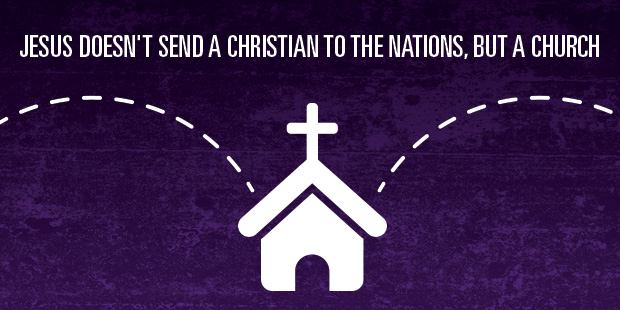
Are You Leading the Whole Great Commission, or Just Half ?
Unlike business leaders who are responsible to define the mission of their organizations, church leaders don’t have that freedom or carry that burden. We have already received our mission. Jesus’ words to His disciples, often called the Great Commission, is our mission:
Go, therefore, and make disciples of all nations, baptizing them in the name of the Father and of the Son and of the Holy Spirit, teaching them to observe everything I have commanded you. And remember I am with you always, to the end of the age. (Matthew 28:19-20)
Some church leaders have positioned their churches as existing for the first half of the commission (the “making disciples”) and some speak of their commitment to the second half (the “teaching them to obey”). But Jesus desires His Church to embrace the whole commission. The Great Commission should not be viewed as two separable parts but a unified whole – a responsibility to both reach and teach.
There is a temptation, however, to attempt to divide the Great Commission and take responsibility for only one aspect of it. Here are three reasons some find focusing on one aspect of the Great Commission an attractive alternative to embracing the whole:
1. With ½ the Great Commission, ministry is less messy.
When a church is committed to “making disciples” of people who are early in their walk with Christ or still exploring the Christian faith and is also committed to helping believers grow in maturity, ministry is going to be messy. There are going to be non-believers alongside mature believers and those with struggles alongside those who feel (often wrongly) that they struggle less.
2. With ½ the Great Commission, ministry is less complex.
The questions a maturing believer asks are often very different than the questions someone new to the faith asks. It is not easy to speak to different groups of people on different phases of their journey, and ministry is much simpler if a leader decides to neglect a group of people. The good news is that the gospel of Jesus is sufficient and poignant for all people, no matter where they are in their journey.
3. With ½ the Great Commission, ministry is less burdensome.
Caring for people at different places on their journey is much more challenging and burdensome than adopting a laser focus for new believers or mature believers. The complexity and the messiness add to the burden.
BUT…
Wrongly dividing the Great Commission into two disparate parts and only focusing on one aspect of the Great Commission is less beautiful and less biblical. A church that reaches and teaches people is a beautiful sight to behold. It is beautiful to see mature believers reminded with what it means to be new to the faith. It is beautiful to see new believers wrestle with some of the convictions those who have been walking with Jesus for a long time hold. It is beautiful to see how the Word of God, by the Spirit of God, is able to speak to people exactly where they are. It is beautiful to see community formed, among people who are very different, on the solid and sure commonality of Jesus. If we attempt to divide the Great Commission and focus on one aspect of it, we lose so much.

Tags: Discipleship, Eric Geiger, Great Commission



















